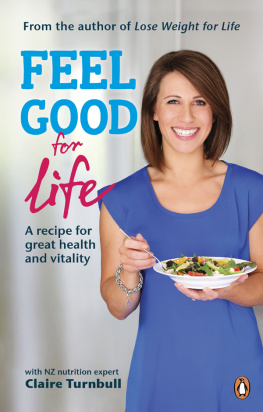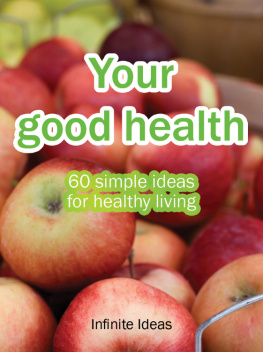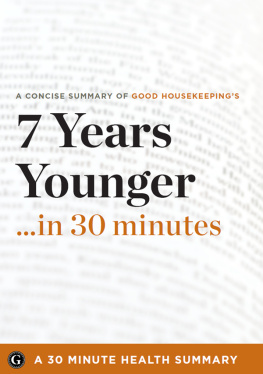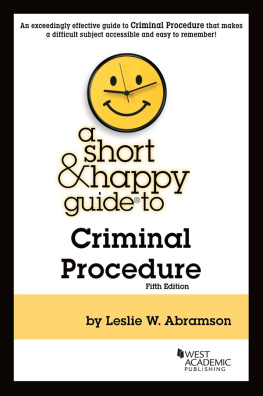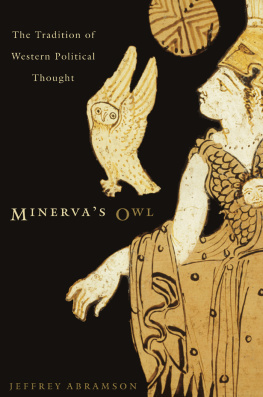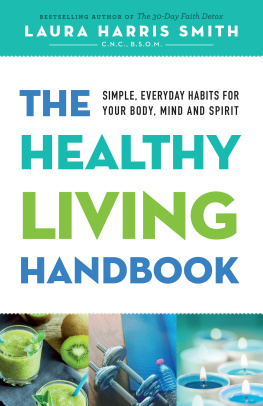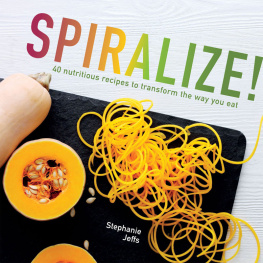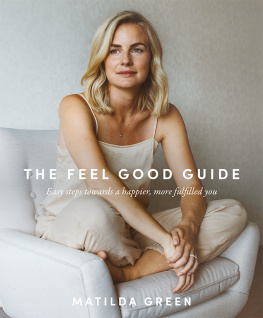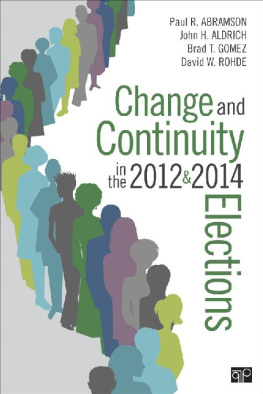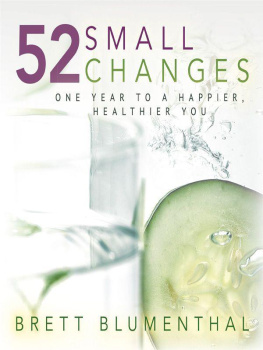
Copyright 2013 by Winnie Abramson.
All rights reserved. No part of this book may be reproduced in
any form without written permission from the publisher.
ISBN 978-1-4521-2976-1
The Library of Congress has cataloged the previous edition as follows:
Abramson, Winnie.
One simple change : surprisingly easy ways to transform your life /
Winnie Abramson.
pages cm
ISBN 978-1-4521-1957-1
1. Nutrition. 2. HealthNutritional aspects. 3. Holistic medicine
Popular works. 4. VegetarianismPopular works. I. Title.
RA784.A26 2013
613.2dc23
2013002292
Designed by Hillary Caudle
Icons designed by Hillary Caudle and Sean McCormick
Chronicle Books LLC
680 Second Street
San Francisco, California 94107
www.chroniclebooks.com
INTRODUCTION
WHEN I WAS SIXTEEN, I decided to lose 5 lb/2.3 kg. I was an active teen on the thin side of normal, but all my friends were dieting, so I figured I might as well join them. It was the eighties and the low-fat dieting craze was in full swing. I jumped on the bandwagon and waited for the weight to melt away.
It didnt, but I kept dieting anyway. Id grown up on the fabulous butter- and cream-laden fare my dad prepared in the kitchen of my familys four-star restaurant The Quilted Giraffe, but magazine articles on weight loss and health said these delicacies could no longer pass through my lips. I became convinced that if low fat was good, then no fat must be better; I also proclaimed myself a vegetarian.
The list of things I would eat got smaller and smaller. I subsisted mainly on salads and cooked vegetables doused with vinegar, cottage cheese, and bagelsand I was constantly hungry. I thought about sweets nearly all the time, and I drank diet sodas and downed large servings of frozen yogurt to quell the cravings.
I told myself the diet was only temporary; Id go off it as soon as I morphed into superskinny Winnie. But when the needle on my scale finally began to move, it went in the wrong direction. I was horrified that I was gaining weight, but I never once questioned the diet; in fact, I went away to college and kept on dieting for another four years.
Despite rigidly controlling my calorie intake and running or taking aerobics classes nearly every day, I weighed about 15 lb/6.8 kg more than I wanted to (10 lb/4.5 kg more than when I had first started dieting) by the time graduation rolled around. At that point, I was also tired all day long and extremely depressed; my face was covered with pimples; and my menstrual cycle had all but disappeared. I felt perfectly awful, yet I still stubbornly believed my diet was perfect.
I visited one doctor after another in the hopes that someone would discover what was wrong with me. I was referred to counselors to talk about the depression, and I was given prescriptions for antibiotics to make the acne go away. I was given no explanation for why I was always so exhausted.
When an endocrinologist diagnosed me with a scary-sounding condition called polycystic ovary syndrome (PCOS) to explain why I so rarely menstruated, my mom suggested we go to a different type of health practitioner for a second opiniona holistic one. This was the first time in my life that I had heard that term.
Appointments with my new doctor were vastly different from what I was accustomed to: She seemed genuinely interested in getting to the bottom of what was going on with me; she did not look at (or try to provide solutions for) my health issues in isolation; and she did not think I had PCOS. She asked a lot of questions that no doctor had ever asked me before, and she gave me a diet diary, a way for me to log what I ate for a week. I proudly filled it in, smug in my belief that no one had a better diet than I.
After a slew of blood tests, the nutritionist from my doctors office called and asked me to come in so we could go over the results. It turned out I had really messed up my body on my so-called healthy diet: I had nutritional deficiencies and numerous food sensitivities. Plus my adrenal glands and my thyroid werent functioning correctly. The nutritionist impressed upon me the importance of eating very differently from then on if I wanted to get better.
I definitely wanted to get better, but I was very confused. I had been led to believe that a low-fat, vegetarian diet was good. Had I taken that advice too far? Or was it possible that advice was wrong for me (or maybe just plain wrong)? I was skeptical about my nutritionists recommendations: Avoid wheat, dairy, and white sugar. Load up on whole foods high in vitamins, minerals, and healthy fats. And start eating protein from animal foods again. But I decided to trust her.
What happened over the next few weeks was nothing short of a miracle as far as I was concerned: The weight Id obsessed over for all those years literally fell away. But maybe even more exciting than the weight loss was how at peace with food I began to feel. I never thought about eating when I wasnt hungry, and my compulsive need to exercise completely disappeared. After a few more months, I wasnt depressed anymore, my skin cleared, and my energy level improved. It took longer for my menstrual cycle to return to normal, but that happened eventually, too.
The experience of making myself sick with one diet, and then healing myself with another, had a profound impact on me. I became fascinated with therapeutic eating strategies and other alternative ways to treat illness, and I wanted to learn more about them. I moved across the country to Seattle to study at Bastyr University, one of the only accredited schools in the United States with programs in science-based natural medicine. I graduated with a doctorate in naturopathic medicine in 1998 and have been studying holistic nutrition and all the ingredients of a healthy lifestyle on my own ever since.
In 1999, I started a blog called Healthy Green Kitchen. My intent was to post recipes featuring wholesome, nourishing foods as well as inspiration for eco-groovy living. Over the years Ive shared hundreds of recipes, along with accounts of my forays into organic gardening, keeping backyard chickens, and beekeeping. At the beginning of 2012, however, I decided to shake things up a little. I went back to my naturopathic roots and embarked on writing a year-long holistic lifestyle series called One Simple Change.
That series was the inspiration for this book.
Like the blog series, this book is a collection of easy-to-implement yet powerful lifestyle tips that can help you positively transform your health and your life. I shared my diet story earlier so youd know why I am so passionate about the topic of nutrition, and why, when I was compiling the list of topics I wanted to cover, I felt so strongly that many of them should be related to food. But as big a role as food has played and continues to play in my life, I believe that being truly healthy is about much more. Thats why I want you to be sure to pay attention to all the other lifestyle suggestions in this book (and there are many).
One Simple Change takes a holistic approach. It will help you discover how to live in a way that will make you feel great while you decrease your risk for a number of chronic diseases. In addition, making the simple changes suggested in this book will benefit not just your personal health, but the health of our planet, as well.
By designin order to keep things truly simplechapters are short and sweet. Though I could have expanded on many concepts, I decided it was best to tell you only what I felt you really needed to know: why and how you should make the change. While each chapter can certainly stand on its own, I planned the book with the hope that readers would do the whole thing. There are fifty changes in the book, and I encourage you to make one change per week over the course of a year, with two weeks off whenever you decide to take them; this is why the book is called
Next page

